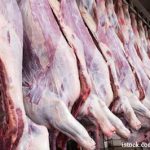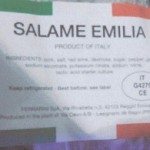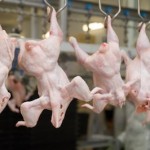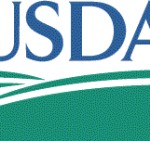The Canadian food safety system has been given the lowest audit rating possible so it can still export food to the United States. The rating of "adequate" follows an on-site audit of Canada's meat inspection system from October to November 2012. The results were just released to the public last month. These results mean that food coming in from Canada will be more closely inspected at the border. The three grades in the audit system are "well-performing", which is the best grade, then "average" and finally "adequate". There are six components of the audit, including government oversight, statutory authority and food safety regulations, sanitation, hazard analysis and HACCP, chemical residues control program, and microbiological testing programs. The audit found that oversight of hazard … [Read more...]
Ferrarini USA Recalls Uninspected Salami Products
Ferrarini USA, importer of record in California is recalling about 15,118 pounds of salami products that were not presented for import reinspection. That is required by FSIS before an imported product can enter commerce in the US. No illnesses have been reported in connection with the consumption of these products. The recalled products include Salame Emilia Ferrarini Log in boxes of 5 logs weighing 7.7 pounds each, with package code 60516 3222 3208. Also recalled is Salame Parma Ferrarini Log in boxes of 5 logs weighing 7.7 pounds each, with package code 60518 3224 3295. Salame Parma Ferrarini Log is recalled, in boxes of 4 logs weighing 7.7 pounds each, with package code 60518 2685 2686. Finally, Ferrarini Salame Parma is recalled, in boxes of 20 chubs weighing 250 grams each, with … [Read more...]
Safe Food Coalition Urges USDA to Withdraw HIMP
The Safe Food Coalition has written a letter to USDA Secretary Tom Vilsack, asking him to withdraw that agency's proposal to modify its poultry slaughter inspection program. That program, known as HAACP-Based Inspection Models Project (HIMP) shifts responsibility for inspecting poultry processing plants from government to the companies. The Food Integrity Campaign has released affidavits from inspectors who have worked at HIMP and non-HIMP plants that talk about the "serious problems the program directly poses to public health," according to that organization. For instance, line speeds are increased up to six times faster at some HIMP plants; federal inspectors are replaced by plant workers who may not speak up about food safety issues; and a greater number of contaminated birds enter … [Read more...]
GAO Criticizes USDA Proposal to Privatize Poultry Inspection
The Government Accountability Office released an analysis yesterday of the HACCP-based Inspection Models Project (HIMP) in poultry slaughter. The USDA is using that project to justify a proposal to private poultry inspection in some plants in this country. The proposed rule, called "Modernization of Poultry Inspection" published in January 2012, would use untrained company employees to replace most FSIS inspectors on the poultry slaughter lines. The rule would also increase chicken plant line speeds to increase to 175 birds-per-minute from 140, raising questions about worker safety and food safety. Senator Kirsten Gillibrand (D-NY) requested the GAO report. The report evaluated USDA's examination of 20 young chicken plants and 5 young turkey plants for the HIMP proposal and found … [Read more...]
GAO Report Finds FSIS Small Plant Inspections Inconsistent
A report by the Government Accountability Office (GAO) has found that the USDA's FSIS inspections of small plants are inconsistent. A small plant is defined as one that has 25 or fewer employees. FSIS completed most of the activities outlined in the Food, Conservation, and Energy Act of 2008 (the 2008 Farm Bill). The program mandated in that Act authorized a new meat and poultry inspection program to support interstate shipment of meat and poultry products from those smaller establishments. FSIS issued program regulations in May 2011 for the new program, called the Cooperative Interstate Shipment (C)S program. As of January 31, 2013, three states - Ohio, North Dakota, and Wisconsin - and eight establishments in two of those states were participating in the program. But that division has … [Read more...]
Tibor’s Gourmet Recalls Pork Sausage Produced Without Inspection
Tibor's Gourmet of California is recalling about 200 pounds of ready-to-eat smoked pork sausage products because they were made with the benefit of federal inspection. No reports of illness have been reported to date in connection with the consumption of this product. The recalled products are Tibor's Gourmet "Ready to Eat" Gourmet Hungarian Brand Mild Smoked Sausage and "Ready to Eat" Gourmet Hungarian Brand Spicy Smoked Sausage. Each package bears the establishment number "EST. 44866" inside the USDA mark of inspection. The products were made between March 25, 2013 and May 2, 2013 and were shipped to a retail chain in Los Angeles and Orange counties. If you purchased these sausages, do not eat them. Return to the place of purchase for a refund. FOr questions and more information, … [Read more...]
Real Pasta Recalls Frozen Pasta Produced Without Inspection
Real Pasta Inc. of New Jersey is recalling 25,000 pounds of assorted frozen pasta products that were made without the benefit of inspection. Some of the products were also misbranded and may contain soy, one of the major food allergens, that is not declared on the label. There have been no reports of illness to date connected with the consumption of these products. The brand names of the recalled products include Angelina Foodservice, Deer Park Ravioli, K-Bella, La Gustosa Ravioli, NY Ravioli and Pasta, Pasta Del Mondo, Queen Ann Ravioli, Raffetto's Corp, Real Pasta Inc, San Marco Ravioli, Serino's Italian Foodservice, and Vitamia. The recalled products include Meat Ravioli, Meat Ravioli Round, Meat Tortellini, Pre-cooked Meat Tortellini, Veal Tortellini, Meat Raviolinni, Chicken … [Read more...]
Sequester Will Lead to Meat Inspector Furloughs
The Agriculture's Undersecretary for Food Safety, Dr. Elisabeth Hagen, said that there will be 11 days of unpaid leave required of food inspectors to meet the budget cuts that were imposed as part of the sequester on March 1, 2013. She spoke at the House Agriculture Appropriations Subcommittee on March 13, 2013. The furloughs will start in July and will continue through September 30, 2013. On those days, meatpacking plants will have to shut down. The cut that the USDA's Food Safety and Inspection Service (FSIS) will have to absorb is 5% of its $1 billion budget. But the effect is larger because all of the cuts have to be taken out of the last half or even the last quarter of the fiscal year, which ends September 30. And 87% of the FSIS budget is personnel costs. Some have proposed … [Read more...]
CFIA Suspends Operations at St. Ann’s Foods
The Canadian Food Inspection Agency (CFIA) has suspended operations at St. Ann's Foods, Establishment 287, effective February 7, 2013. The company failed to correct deficiencies in hygienic practices that were found in earlier inspections. While St. Ann's Foods had an acceptable action plan that they presented to the government, they did not demonstrate "consistent or full implementation of the corrective measures within the required timeframe and this has resulted in the license suspension." There are no food recalls associated with this suspension. No consumer illnesses have been reported in connection with any of St. Ann's Foods products. The plant is located in St. Ann's, Ontario. The facility slaughters and processes beef. … [Read more...]
Missouri Suspends Exempt Status of Leinbach Custom Processing
The Missouri Department of Agriculture's Meat and Poultry Inspection Program has halted custom exempt processing operations at Leinbach Custom Processing. A routine inspection on February 11, 2013 found that the facility was using non-potable water in plant operations. The water was sampled January 29, 2013 and February 8, 2013 and analyzed at the State Public Health Laboratory. The custom exempt processing permissions are suspended until the violation is addressed and the facility provides documentation of potable water to the state. Custom exempt processing is used for livestock owners for their own consumption. Those products are not to be sold to the public. If you purchased any items from Leinbach Custom Processing, or have had meat processed there, carefully examine the items … [Read more...]











